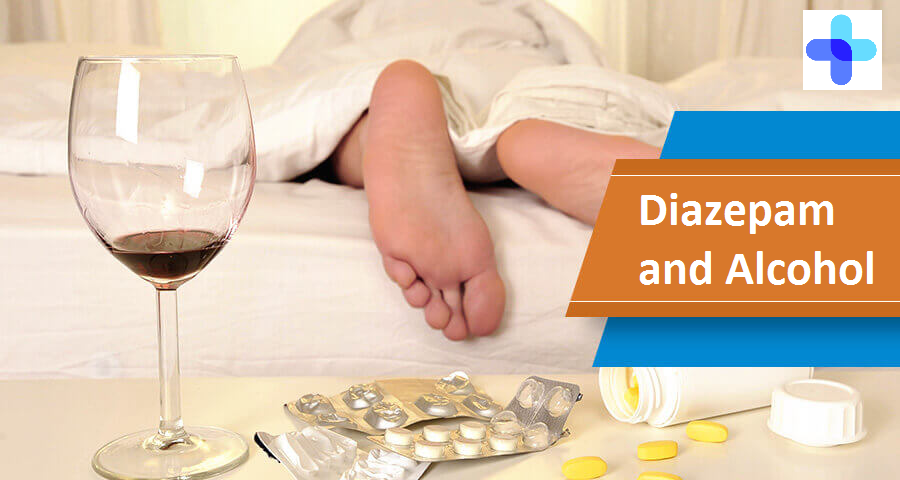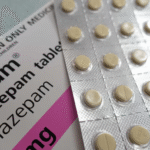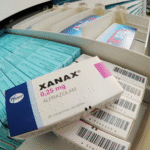
The interaction between diazepam and alcohol, i.e. a benzodiazepine and an ethanol, is potentially dangerous and harmful for physical and mental health, primarily due to their synergistic effects on the central nervous system (CNS). Both substances are CNS depressants, and therefore, when combined, they can amplify each other’s effects, leading to severe physical and mental health risks. Below is a explanation of why this interaction between diazepam and alcohol is harmful:
1. Additive CNS Depressant Effects
Both diazepam and alcohol depress the central nervous system, i.e. slowing down the working of the brain. When taken together, their sedative effects are not just additive, but also synergistic, meaning the sedation effect is significantly greater than the sum of their individual effects. This can lead to extreme drowsiness, dizziness, confusion, nausea and loss of coordination.
2. Respiratory Depression
One of the most dangerous outcomes of taking it together is respiratory depression, where breathing becomes slow, shallow or stops altogether. The combined depressant effect of both the substances on the brainstem can suppress the respiratory centers, especially in high and overdoses or in sensitive and older individuals. Its effects can be life-threatening and may require emergency medical help.
3. Increased Risk of Accidents and Injuries
Impaired judgment, reduced motor coordination, memory problems and slowed reaction times increase the risk of falls, fainting, car accidents, and other injuries. The user may underestimate their level of impairment and problems caused by it, leading to dangerous behaviours and actions.
4. Profound Cognitive Impairment
The interaction of diazepam and alcohol can cause memory loss, memory impairment, confusion, blackouts, and causing inability to form new memories. Diazepam (Bensedin) already impairs memory functioning and memory formation, whereas alcohol intensifies this effect. This can result in severe episodes of amnesia, even if the individual appears to be functioning normally.
5. Risk of Overdose
Both diazepam and mix alcohol suppress vital bodily and mental functions, increasing the risk of overdose. Its symptoms may include unconsciousness, dangerously slow breathing, memory impairment, low blood pressure, and even death. Even therapeutic doses of diazepam can become dangerous and harmful when mixed with alcohol.
6. Exacerbation of Mental Health Issues
Alcohol may worsen the symptoms of anxiety or depression, for which Bensedin is often prescribed by doctors. The combination of diazepam and mix alcohol can reduce treatment efficacy and cause mood instability , behavioural problems or suicidal ideation.
7. Development of Dependence and Tolerance
Both diazepam and alcohol are habit-forming. Concurrent use increases the risk of developing physical dependence and increasing tolerance, leading to escalating doses and higher risk of addiction. Withdrawal from both substances can develop severe symptoms and requires immediate medical supervision.
8. Unpredictable Reactions
Individual responses to the combination of diazepam and mix alcohol can vary based on age, health status, gender, dosage, medical history and frequency of use. This unpredictability makes the combination especially harmful and dangerous.
Conclusion
The interaction of diazepam and alcohol is highly dangerous and harmful for physical and mental health due to their potent CNS depressant effects, which can lead to respiratory depression, stress, cognitive and memory impairment, overdose, and death. This combination should be strictly avoided, and patients consuming diazepam are strictly advised not to consume drug.

 Previous Post
Previous Post Next Post
Next Post